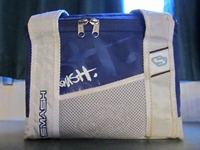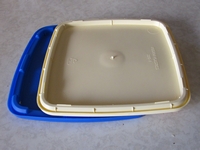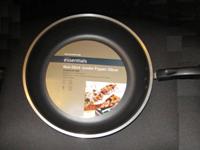Australia So Much to See


For camping days away from caravan
Tent and groundsheet
Sleeping bags and pillows (from caravan)
Beds and air pump if air bed
Gas
camping stove and small gas bottle
Large bowl for washing up and bathing (this is our bath bowl in the caravan)
Other cooking utensils,
eating utensils and food packed from caravan
Mosquito/midge netting
Water canisters (drinking, cooking/washing)
Table and chairs
Rechargeable
lanterns
In the car
We have an Engel car fridge which carries lots of drinking water and our lunches.
Lunch box with our
needs for preparing and eating lunches (tray, cutting board, sharp knife with round point suitable for cutting and buttering), “truck
cups”, paper towels, and some dry foods such as biscuits for emergencies and snacks.
We carry a 12 volt
pie warmer when in cold climates.
Moist hand wipes
First Aid kit (goes into caravan when we stop)
Back pack and contents ready for walking (click on link for suggested contents)
Recovery gear, tools and vehicle spares, spares tyres, tyre mending kit, tyre pliers set, compressor, and warning triangle or flashers for breakdowns
A torch
Maps for that area
List of phone numbers such as for Royal Flying Doctor Service, fuel outlets if travelling in remote areas, agents for spares parts specific to your car and caravan eg caravan springs, motoring organisation breakdown assistance, your vehicle insurer, road conditions, Police.
Music (MP3 player
or similar ideal)
Plastic bags (freezer type) for rubbish and for toilet paper when in the bush.
"Grab Bag" with phones, money and anything you would need to take quickly in an emergency evacuation. This can be kept in your back pack.
This is my basic packing list, and we can travel indefinitely through most climates, but for someone with a big van as their sole home, they would probably have a lot more home comforts. This list started out as the packing list for short holidays with a tent, and a few more things were added each trip through the progression of camping styles. Everyone will have different needs, but these may help you get started on your list.
Clothing
Three sets of every day clothing, and a few more ‘socks and jocks’
if you want to as they don’t take up much room. Depending on expected climate whether you need warm clothes or just shorts and
tee-shirts. Even in hot areas, take one track suit for cool nights or unexpected weather changes.
Shorts, tee-shirts and
tank tops. Non iron is great, but cotton is much more comfortable on hot days.
Track suits for cooler weather and a good pair of jeans. Choose colours that will not show stains or require special laundry treatment.
One good non iron outfit for special
occasions (I take black slacks, a non iron Balinese sarong and a lightweight long sleeved blouse, he takes dark jeans and a good
quality non iron shirt)
Socks and undies; include Explorer socks or similar for cold climates, particularly as bed socks
Pyjamas/sleepwear
(two sets; summer or winter depending on where you are going)
Shady hat (collapsible), beanie for cold climates
Sandals and joggers
(good quality walking shoes), one pair good shoes for special occasions, slippers suitable for wearing out of doors (eg to shower
block). Rubber thongs to wear in showers if you are prone to tinea.
Bathers
Kitchen
Keep it lightweight. Silicon bakeware is ideal.
Large fry pan
Medium and small saucepans
Lightweight kettle
Small
baking/browning dish if you have an oven (mine travels in the oven) and silicon bread/cake bakeware and silicon baking sheet
Barbecue tongs and jaffle iron for outdoor cooking; you may also want a bag of campfire cookware if you plan to cook on camp fires
(fire restrictions permitting)
Gauze toaster for toasting on gas
Small or medium sized plastic jugs with lids
Plastic trays
Pack in tea
towels to avoid rattling and wear
Gas lighter (needed particularly if you have a built in gas hot water system without electronic ignition)
and matches
Detergent, laundry detergent and pegs
Can opener, serving and cooking utensils such as kitchen knives, tongs, wooden spoon
and egg slice
A couple of boards for hot pots
Pot holders
Tea towels, paper towels
Sponges and disposal Chux style wipes
Crockery – lightweight
or plastic
Cutlery – lightweight
Cups and mugs, ‘glasses’ plastic preferred
Take only enough for your needs. If you have guests,
they can bring their own.
Food
If you are going to more remote areas (and much of
Coffee, tea, sugar, milk powder; decanted into plastic containers
Flour and yeast if you intend to make bread
Rice and or pasta, including a few packets
of ten minute noodle meals
Dried fruit for inland areas where fresh fruit is hard to get
Cooking oil (spray can)
Spices, pepper
and salt, to suit your tastes
Vegemite, peanut paste, jam if you eat these – plastic jars preferred
Canned food. I take canned
tuna, baked beans and canned fruit, most of this is as a back up for when out of fresh food. Canned meats can also be useful;
particularly when refrigeration space is small and remote travel means a long time between shopping centres.
Dried vegetables
for back up and after crossing into exclusion zones. Dried meat or meals can be obtained on line and from camping stores that
cater for hikers.
Breakfast cereal; hot porridge is nice on very cold mornings.
Dried bread type biscuits or mountain bread for
lunches when there is no fresh bread.
Long life milk (heavy and bulky to store, but nicer than powdered milk)
Fresh vegetables and fruit. Potatoes and onions keep well. Be aware of restrictions crossing state borders and into exclusion zones.
Cheese, meat
and fresh vegetables in fridge
Other
Buckets (colour coded for fresh and waste water)
Sullage (grey water) hose
Large buckets with lids if you want to do the
washing with the vehicle movement
Rags or old towels
Broom, dustpan
Cleaning needs such as laundry detergent, nappy soaker for laundry and toilet
Camp spade
Insect repellant and ant dust, sunscreen
Spare light bulbs, cupboards hinges and latches
Power cords and multiple
outlet boards
Ropes
Torches and spare batteries
Ladder if needed
Laptop and accessories if needed
Cameras, spare batteries and battery
chargers
Scissors, note pads, pencils, pens, sticky notes
Books – another weighty item unless you use and electronic reader, but you
will still need some maps books and tourism books or brochures and any other reference books (birds, reptiles, wild flowers).
Container of
coins suitable for laundromats, coin showers, parking meters.
Fishing gear if needed
Bathroom and bedding
Personal
items such as bathroom bag, cosmetics, medications
Two sets sheets and pillow slips, light cover, quilt and pillows
Towels and floor
towels/mats
Toilet rolls (leave some in the car)
Tissues
Tools and spares
Depending on you style and region of travel, your rig and your own expertise
A minimum, wheel spanners
and good jack suitable for both your vehicle and trailer; we carry two jacks
Compressor for re-inflating tyres, tyre pressure
gauge
Depending on how far off the major highways you are going to venture, type repair plugs and tyre pliers may be invaluable.
A selection of spanners
Recovery gear such as snatch strap and/or drag chain.
A pair of jack stands (for safety when working
under a jacked up vehicle or trailer).
Breakdown warning triangles or flashers
Hi Vis vests for yourselves
Infra-red temperature
reader (mine is a Fluke brand, but cheaper ones can be purchased from Jaycar stores); for checking wheel bearing and brake drums,
as well as being useful for monitoring fridge and freezer temperatures.
Radiator hoses and clamps, belts according to your
vehicle
Hammer
Screwdriver set
Portable electric drill
Electrical pliers and connectors (for 12 volt vehicle light cables and similar)
Spare
bolts in a variety of sizes
For really remote travel and depending on your rig, trailer springs and or axles may even be considered.
Your load will be limited by weight and space availability
My husband's tool boxes have the above and lots more.
Packing list



Casserole Pot with Lid
Frypan
Baking Tray
3 Piece Knife Set
8 Piece Utensil Set
Grater
4 Piece Storage Set with Lids
Kitchen Tong
Set of Measuring Cups
Set of Measuring Spoons
Measuring Jug
Mixing Bowl
Peeler
Can Opener
Scissors
3 Cutting Mats